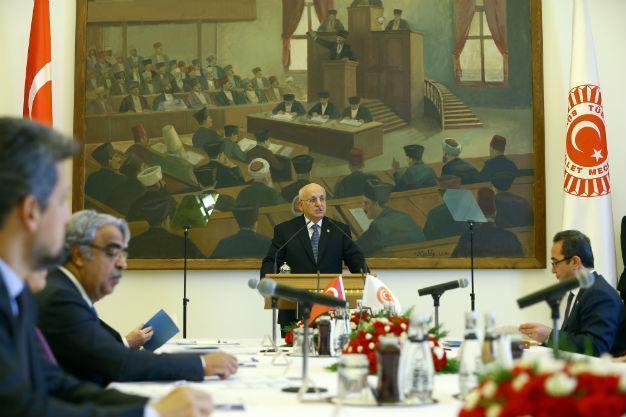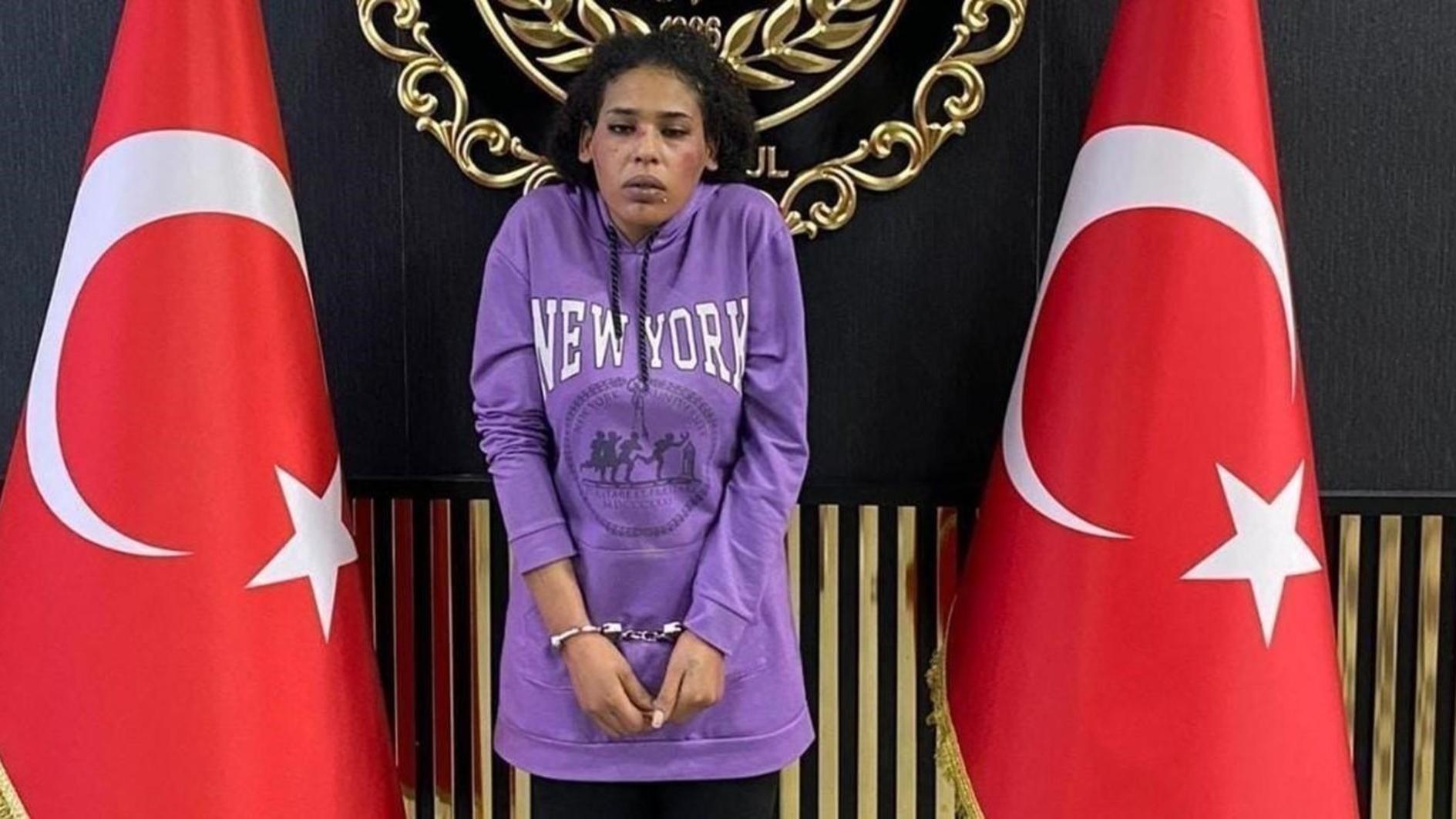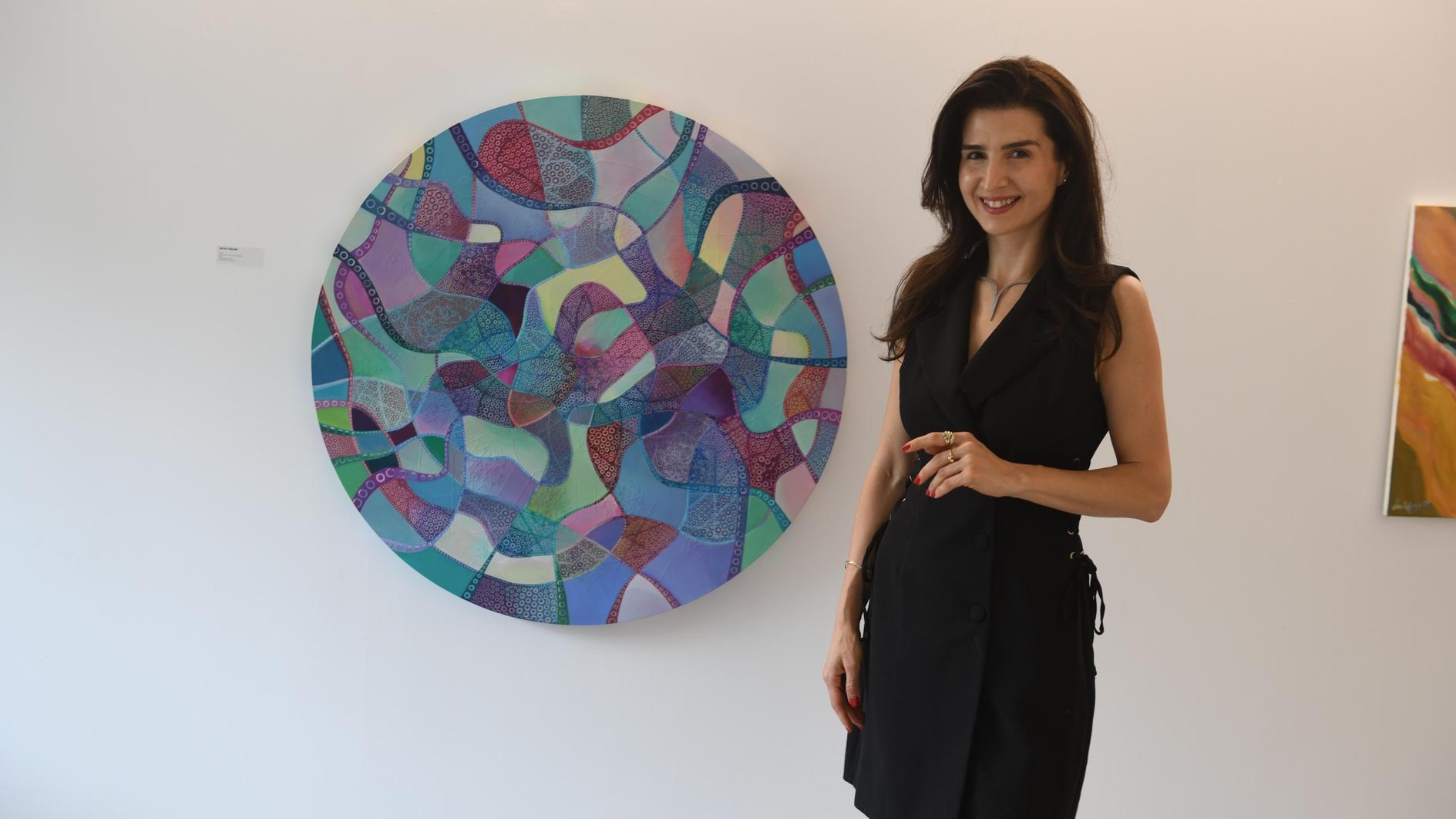New Turkish Constitution talks collapse due to presidential system row
Bülent Sarıoğlu - ANKARA
 The ruling and main opposition parties have traded accusations over the dissolving of an inter-party parliamentary panel tasked with drafting a new constitution after just three sessions. The main opposition Republican People’s Party (CHP) left the table on Feb. 16, complaining that the ruling Justice and Development Party (AKP) had tried to link all issues to changing Turkey from a parliamentary to a presidential system.
The ruling and main opposition parties have traded accusations over the dissolving of an inter-party parliamentary panel tasked with drafting a new constitution after just three sessions. The main opposition Republican People’s Party (CHP) left the table on Feb. 16, complaining that the ruling Justice and Development Party (AKP) had tried to link all issues to changing Turkey from a parliamentary to a presidential system.“This commission has ended,” Parliament Speaker İsmail Kahraman declared late on Feb. 16, after the third meeting of the commission that started its work less than two weeks ago.
CHP deputies had said they refused to “give concessions on the founding principles of the constitution and the parliamentary system.”
Speaking at a press conference on Feb. 17, Kahraman called on commission members from all four parties represented at parliament - the AKP, the CHP, the Nationalist Movement Party (MHP), and the Peoples’ Democratic Party (HDP) - to return to negotiations.
“I hope the CHP will give a positive response to this call,” Kahraman told reporters in parliament. However, he also said the talks could continue without the CHP, even though officially and procedurally the commission would be assumed as dissolved if one of the parties withdraws.
When asked whether work could continue with two or three parties, Kahraman responded by saying that “either 330 or 367 votes are required,” referring to the number of MPs needed to pass a constitutional change or take a change to a referendum. “If [opposition parties] get involved in work that would provide that number, we would be pleased. God willing, that will happen,” he added.
In the Nov. 1, 2015, election the AKP secured 317 seats in the 550-member parliament. For a constitutional change in parliament, the AKP needed to win 367 seats, though 330 seats would be enough to take the issue to a referendum.
Later on Feb. 17, President Recep Tayyip Erdoğan called on members of parliament to “appeal to the nation” over changing the constitution and Turkey’s political system.
Addressing his remarks to “prestigious members at parliament,” Erdoğan called on lawmakers to “take a decision” on forming a new constitution.
“Say ‘We will appeal to the nation.’ Go to the nation. See what the nation tells you. Prepare and present it to the nation. If the nation says ‘Yes,’ does sovereignty not rest unconditionally with the nation?” he said at a gathering with at his presidential palace.
“We will release our new constitution within the framework of building of the ‘New Turkey.’ The presidential system will be realized in this way. If this nation does not want a presidential system, we have nothing to say against the nation,” Erdoğan added.
Earlier, Prime Minister Ahmet Davutoğlu had asked lawmakers to resume the constitutional reform talks.
“I am calling on political parties once more to continue these efforts. We need to keep a framework at the table so every issue can be discussed without preconditions,” Davutoğlu told a science and technology conference in Ankara. “I ask the parliamentary speaker to sustain his will to continue this enterprise he started.”
Final minutes
Late on Feb. 16, Davutoğlu met AKP commission member deputies following Kahraman’s announcement about the collapse of the commission. After the meeting, AKP spokesperson Ömer Çelik said the party was ready to resume work on the new constitution with deputies from the HDP and the MHP. The HDP and the MHP have yet to decide on the AKP’s call.
The CHP executives have frequently repeatedly stated their party’s view on the first four articles of the current constitution, which were earlier dubbed a “red line” by their leader Kemal Kılıçdaroğlu. They have also ruled out any support for a shift to the presidential system through a change in the constitution, as strongly favored by Erdoğan and the AKP.
The first four articles of the existing constitution include clauses about Turkey as a secular state and Turkey’s official language as Turkish.
During the five-hour closed-door session late on Feb. 16, the CHP commission members reportedly listed their conditions, stating that they would “not get involved in a debate on the regime or allow any discussions on founding principles.”
“Let’s not deceive each other. Let’s take a decision,” the CHP members reportedly said, according to the minutes of the last meeting.
Upon these remarks, Kahraman made his final decision to close the commission.
“We shouldn’t be like an idle wheel turning without doing useful work. Let’s not deceive ourselves,” he reportedly stated.
















